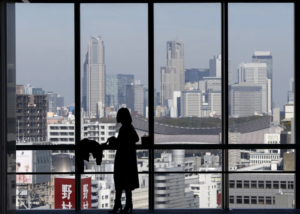Analysts predict prevailing patterns in work and shopping to continue, though rumblings of the “death of the office” likely overstated

Results of the recent quarterly commercial property survey by the Royal Institution of Chartered Surveyors (RICS) show a shift in demand towards industrial space and away from traditional office spaces and retail. This trend is buoyed by a boom in online shopping accelerated by the pandemic.
Although the British government is ramping up the COVID-19 vaccination programme, restrictions are expected to stay put for the coming months. This means the prevailing patterns in work and shopping will likely remain for the foreseeable future. After the implementation of the current lockdown, sources show about 45% of adults are now working from home.
Despite rumblings of the “death of the office,” Workspace remains optimistic as demand from businesses persists despite the pandemic. In a recent interview, Graham Clemett, chief executive of Workspace, said: “The death of the office is probably being significantly overstated, but people are more selective about what they want.”
With 60 office sites in London, Workspace averaged 672 enquiries per month last quarter. Though enquiries were lower compared to 1,001 for the same period last year, there is a clear and continued demand for office space.
Clemett states, “The timing and pace of our recovery will depend on the rollout of the Covid-19 vaccines and lifting of Government restrictions.”
Rather than death, office spaces are more likely to undergo a transformation. Demand will rise for premium office spaces and decline for the average, traditional workspace. The reign of open-plan workplaces is probably over which is good news for introverts.
According to Rory Sutherland, vice-chairman of Ogilvy Group UK, “Organisations are likely to need less square footage as people work remotely more often. But the style of an organisation’s office, quite apart from its size, will also change. Demand for super-premium, high-end office space may rise while demand for average, boring office-space – especially in London – is likely to fall away.”
Flexible leases and flex offices in line with flexible work arrangements and remote work are also gaining steam. The challenge for property owners and businesses is to make office spaces hubs for creativity and collaboration. This won’t be a hard sell as months of lockdown has taken a toll on professionals looking for face-to-face interactions to boost productivity and inspire innovation.
“Open-plan offices also drive up the use of email – and emails can be sent from anywhere. Workspaces will bifurcate into places that are genuinely sociable places – facilitating conversation, generating serendipitous encounters, and helping teams celebrate – and libraries where people can work in perfect peace,” said Sutherland. —Doreen I.






